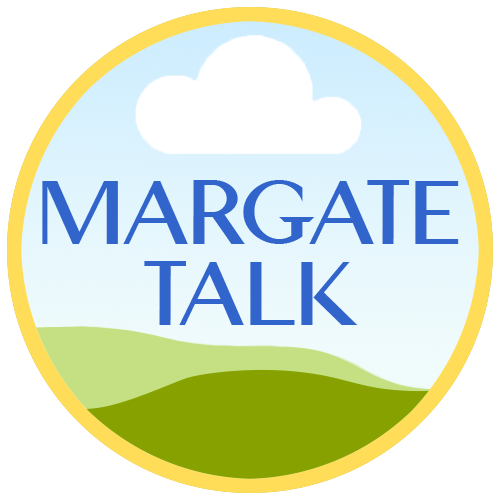By Jim Turner
Floridians facing economic pressure from inflation will get a second crack to save on “freedom” starting Friday.
Wrapped around the Fourth of July for the second consecutive year, a sales-tax “holiday” dubbed “Freedom Week” will provide tax breaks on a wide range of recreational activities and outdoor gear.
Lawmakers included freedom week in an annual tax package HB 7071, offering other tax holidays and sales-tax exemptions. The state has already held a disaster-preparedness tax holiday around the June 1 start of the hurricane season and will hold a back-to-school tax holiday later in the summer.
“With the pressures of inflation, and the concerns that are out there, we want to see people continue to support our local retailers,” said Scott Shalley, president and CEO of the Florida Retail Federation, which has long lobbied for tax holidays.
Before signing the tax package on May 6 at a Sam’s Club in Ocala, Gov. Ron DeSantis pointed to the impacts of inflation and described freedom week as a way that “families can afford a fun summer.”
Not everyone is so enamored with tax holidays.
The Washington, D.C.-based Center for State Tax Policy at the Tax Foundation questions the economic benefits of tax holidays, pointing to studies showing consumers shift the timing of purchases. That in some cases, retailers have raised prices during the discount periods.
“States are sitting on surpluses at the same time many taxpayers are struggling under the burden of high inflation,” Jared Walczak, the foundation’s vice president of state projects, told The New York Times this month.
“State tax holidays tend to be political gimmicks,” Walczak continued.
During freedom week, which will last through July 7, people will get sales-tax breaks on such things as tickets for concerts, movies, ballgames, and museum visits, as well as on supplies and gear for outdoor activities ranging from fishing rods and bicycle helmets to grills and kayaks.
Lawmakers approved the first freedom week in 2021 to entice people who were holding back on going out because of the COVID-19 pandemic.
State economists and the Florida Retail Federation anticipate more people will take advantage of the holiday this year.
“A lot of our retailers are running their own promotional deals to try to get folks out,” Shalley said. “It’s an opportunity to save money on fun stuff. We’re usually talking about disaster preparedness and back-to-school. But in this case, with freedom week, we’re talking about outdoor activities, recreational products, fishing gear, and a wide range of things.”
Last year, the Legislature’s Office of Economic & Demographic Research estimated freedom week would cut state revenue by $42 million and local revenue by $12.7 million.
This year, the projections are a $54.5 million reduction in state revenue and a $16.1 million reduction in local revenue.
In addition to freedom week, other tax breaks will take effect Friday. For the next year, sales taxes will be lifted on children’s diapers and Energy Star washing machines, clothes dryers, water heaters, and refrigerators.
Also, starting Friday, a two-year tax break will begin on impact-resistant windows, doors, and garage doors.
Here are some of the purchases exempt from sales taxes during Freedom Week:
Tickets purchased for live music, live sports, plays, movies, fairs, and festivals, for events through Dec. 31.
Entry to museums and state parks, including annual passes.
The first $5 on the price of fishing bait and tackle.
The first $15 on the price of sunscreen and insect repellant.
The first $25 on the price of swimming snorkels, goggles, and masks.
The first $30 on the price of fishing tackle boxes, water bottles, camping lanterns, and flashlights.
The first $35 on the price of recreational pool tubes, pool floats, inflatable chairs, and pool toys.
The first $50 on the price of sleeping bags, portable hammocks, camping stoves, collapsible camping chairs, and bicycle helmets.
The first $75 on the price of life jackets, coolers, paddles, oars, fishing rods, and reels.
The first $100 of the price of sunglasses.
The first $150 on the price of water skis, wakeboards, and kneeboards.
The first $200 on the price of tents and binoculars.
The first $250 on the price of bicycles and grills.
The first $300 on the price of paddle boards and surfboards.
The first $500 on the price of canoes and kayaks.
Got News in Coconut Creek and Margate? Send it to Margate Talk.
Author Profile

Latest entries
 NewsAugust 16, 2023Aldi to Buy Winn-Dixie Stores
NewsAugust 16, 2023Aldi to Buy Winn-Dixie Stores NewsApril 18, 2023Florida House Readies Measure to Prevent Children from Seeing Drag Shows
NewsApril 18, 2023Florida House Readies Measure to Prevent Children from Seeing Drag Shows NewsMarch 7, 2023Florida Utility Customers Brace for Higher Electric Bills in April Due to Hurricane and Gas Costs
NewsMarch 7, 2023Florida Utility Customers Brace for Higher Electric Bills in April Due to Hurricane and Gas Costs NewsFebruary 4, 2023Recreational Pot Proposal Clears Initial Hurdle
NewsFebruary 4, 2023Recreational Pot Proposal Clears Initial Hurdle











